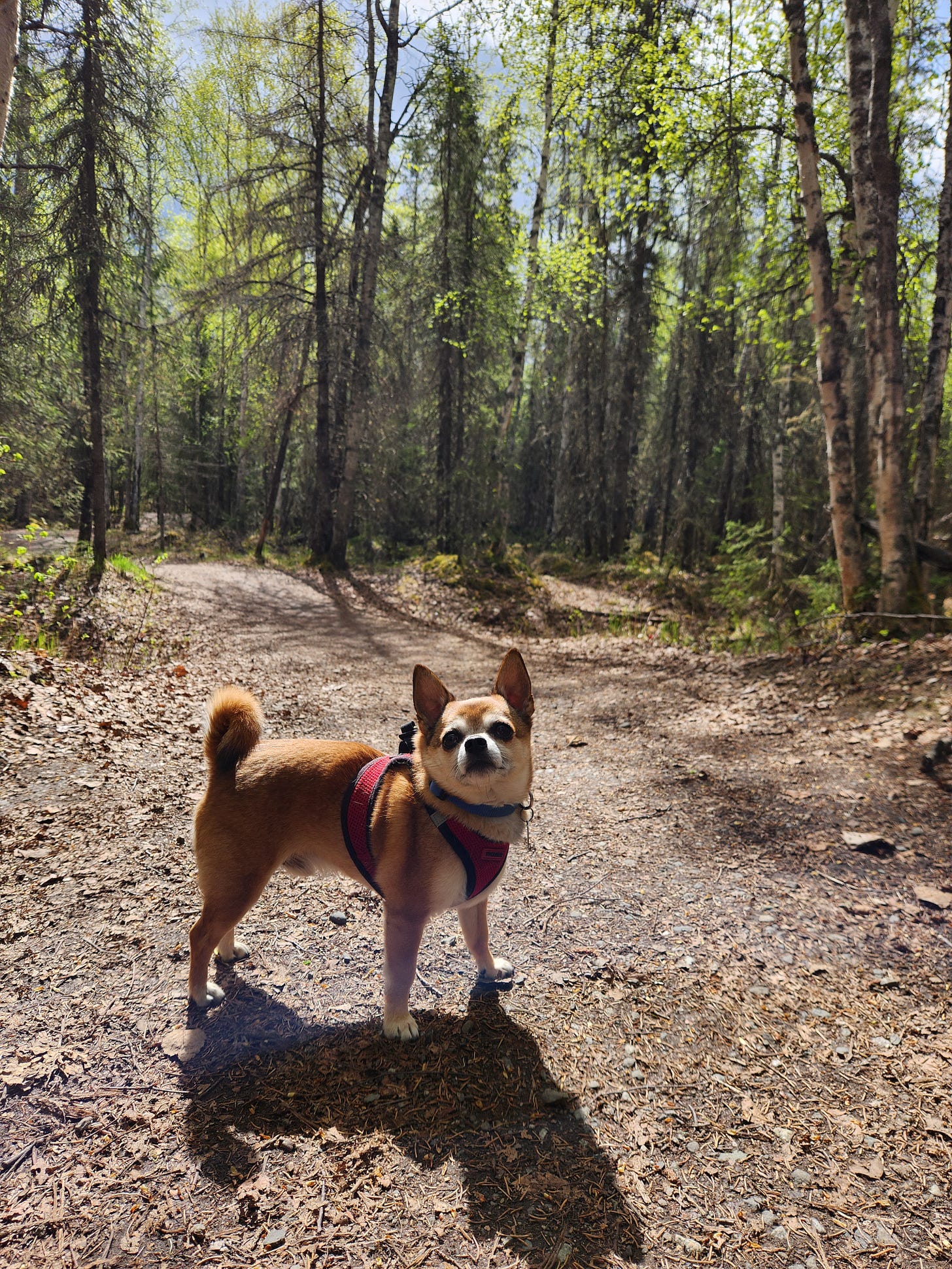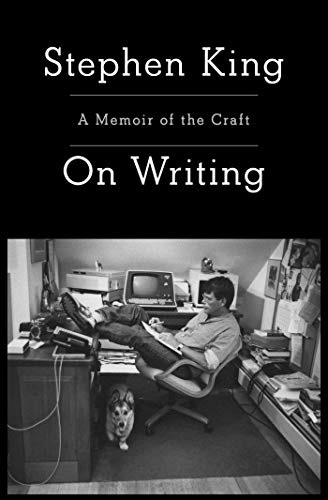Don’t be a writer. Be writing. –William Faulkner
Sometimes people are like “How do you carve out time to write? How do you make a living off of it? How do you structure your work week?” and I’m like wow, that’s a really good question, and also I don’t think I’ve ever written about that publicly (although I think I’ve touched on it in a few podcasts but I can’t remember which ones?) so I’ll try to break it down here. There’s two main questions- 1. How do I make a living off of writing and 2. What is my writing process, so I’ll address them separately! Ok.
Question 1: how do you afford to write/how do you make a living off of writing?
First of all, you don’t need an MFA to write. In fact, my recommendation is that you do not get an MFA. (I don’t have one.) MFAs are a very recent invention that IMO stifle creative growth (I don’t believe that one should be critiqued that early in the process, I believe that one should simply be cranking it out in great quantity.) Some people are helped by the structure that an MFA provides, but when the MFA is over that structure is gone, and you’re still gonna have to learn to create structure for yourself- so why pay for an MFA? I also believe that institutions suppress art and innovation, rather than foster them- art is magic. Art is for people, and belongs to the people. Not to institutions. Writing is just stories. Stories belong to the people. Also, I personally do not believe that writing can be taught, but I do believe that it can be learned (by cranking it out in great quantity).
Writing is like playing the violin, you need to do it for a million hours or whatever in order to get better at it. You don’t need to be precious about it, you don’t need to pay for an MFA, you just need to do a LOT of it. Over many many years. The more you write, the more you’ll figure out how to do the things you want to do with it. Maybe you’ll write entire book-length manuscripts that end up in the trash, and like a thousand blog posts (this is what I did). This is great! Those trash manuscripts and blog posts go towards your million hours. Not a single page of awful prose is wasted.
To do all this writing, obviously you need a lot of time. I have never been able to work a full-time job and write simultaneously. So what I did through my twenties, in order to free up time to write, is take a lot of financial gambles and sacrifice any kind of stability. I worked seasonal jobs and part time jobs, and lived off very little money- for all of my twenties I lived off about $800/month. I lived in moldy basement rooms, in a trailer in my friend’s driveway, in a wooden falling-apart shack. I didn’t own a car. I ate cabbage, carrots and lots of beans. I traveled by hitch-hiking and riding freight trains. I didn’t have health insurance and I spent money on very little. (And of course, things were cheaper back then lol). This allowed me chunks of each year where I lived off savings from my seasonal work and cranked out my terrible manuscripts that ended up in the trash (as well as zines and blog posts). I didn’t have any safety net (I don’t have family), but the risk was worth it, because all I wanted to do was write. Luckily, I didn’t get sick or have any other kind of financial emergency. I was young and needed nothing, and I took full advantage of that.
It's probably possible to do this in a more stable way- you can get a Real Job that pays well but is seasonal, or a Real Job that you work for a few years, save up money, and then take a year off to write. But no matter what, if you don’t have large chunks of free time, it’s almost impossible to devote yourself to writing in the way you need to to build a career of it. IMO.
In 2015 I self-published Thru-Hiking Will Break Your Heart (I couldn’t find an agent who thought it was commercially viable, so I couldn’t pitch it to traditional publishing companies). I wanted to do a good job self-publishing, so I spent two years researching the market and learned a ton before launching the book. THWBYH sold well and became a bit of a cult classic, and for a few years I was able to live off the royalties, which was life-changing as it bought me a lot more time to write. My entire experience of self-publishing was wonderful; while self-publishing is a lot more work than traditional publishing, it pays much, much better, so if you’re willing to do the research and wear a lot of different hats I would recommend it, hands down.
A note on small publishers: I did not consider publishing THWBYH with a small press (you can often pitch to small presses without an agent) because small presses, generally, do not pay. Writers deserve to get paid for their work. Why would I give the rights of my work away, for a company to sell and make profit on, without anything in exchange? The editors, cover designers, formatters etc at a small press all get paid (hopefully a fair wage)- why is the writer the only one who doesn’t get paid? If the writer isn’t getting paid, then no-one else at the press should be getting paid either. While I think I understand the intentions behind small presses, this is, IMO, a bonkers business model, and lowkey exploitative. It’s like taking your car in to get an oil change and the mechanic is like “yeah we’ll change the oil, but then we get to keep the car”. Small presses seem to think they’re “helping” writers by making their work available but I can just make my work available by putting it on the internet? I dunno man.
Also, there’s this idea around self-publishing that self-publishing is bad because then books that aren’t good will get published. Many, many not-good books are published all the time by traditional presses. Good art rises to the top, no matter what. Who publishes it matters not at all. In fact, institutions with their rigid ideas of what “good” art is and who can produce it only get in the way of innovation. The thing to do is get rid of all the gatekeeping, and the good art will flourish on its own. This is what the internet has done- the internet is the decentralization of media. An insane amount of very good art, not backed by any institutions, has flourished because of the internet. And we’ve always acknowledged this with indy music- independent music is where magic and innovation happens. This is true of writing as well.
Once THWBYH was in the world and I was living off the royalties I started focusing on The Sunset Route, which I’d been working on since like 2006. Since THWBYH was commercially successful I was able to find a literary agent who was willing to take a gamble on The Sunset Route. A literary agent takes a 15% cut of all the royalties you make on a book, but it’s commonly agreed upon that they help you get a much better deal than you would be able to get on your own when dealing with traditional publishers, so even after this cut you end up coming out on top. In February of 2019 we sold The Sunset Route to Dial Press for $50,000. (Dial Press published a few of James Baldwin’s titles back in the day, and he’s one of my literary idols so that made me really happy.) My agent took 15% and then I got the rest in 4 payments over the course of 4 years. This wasn’t enough to live off, of course, so I did a bunch of other stuff while working on The Sunset Route- I made and sold an online course on hiking the PCT, I did long-distance hiking coaching, I sold zines. That and the royalties I was getting from THWBYH were enough to make it work. I wasn’t making as much royalties as I had been, though- the continued sale of THWBYH depended on me hiking 5 months a year and blogging every day of every hike (keeping my platform alive kept the book selling) and once I stopped doing this as much sales slowed. The Sunset Route came out in 2021 (yay!).
In the fall of 2019, while editing final drafts of The Sunset Route, I also started working on my third book, Bets and Jane, a speculative fiction novel. That’s what I’m working on right now! I have no idea if I’ll be able to sell it to a publisher, and neither does my agent (lol). If we can’t sell it I can self-publish it, though, and I had a wonderful experience self-publishing, so I know I’ll be ok either way. These days I’m also guiding backpacking trips and working seasonally for the department of Fish & Game, so that’s the hodge-podge that keeps the whole machine going. I’m hoping to get this current draft of Bets & Jane to my agent by June 12, when I leave for my Fish & Game job, so she can try and sell it while I’m living in a wall tent on the tundra. I would love nothing more than to get text updates about that on the inreach. Imagine it- I’m covered in fish slime, cold, my cheeks windburned, huddled over the propane stove in our tarp-shack kitchen heating water for tea after a 3 a.m. drift. Mickey is fiddling with the antennae of our little battery-powered radio, attempting to get a clearer signal for when the fish report comes in, and then the inreach chirps. It’s my agent! (She lives in Portugal so is in that time zone, so this makes sense). She says that several publishers are interested in my novel, and now they’re bidding against each other. How exciting! (Realistically, no-one will want it and I’ll self publish. But the fantasies are fun, anyway.)
So that’s the nuts and bolts of how I carve out time to write and also support myself while doing so.
TL;DR: financial instability! Great risk! To avoid this, be wealthy! Or move back in with your parents maybe?
Question 2: What is my writing process?
Short answer: I do what Stephen King tells me to do
In his book On Writing, Stephen King lays out a formula for creating a book-length manuscript. I follow it. Exactly. It works. Here’s a summary, in case you don’t want to read the book:
First, I carve out a several-month chunk of time where I can focus solely on my large writing project (as described above). Then:
I make myself a work-week schedule. I like to work Monday-Friday. My goal during the workday depends on what stage in the writing process I’m at. If I’m working on a first draft, this is the process-
1. Kill your internal editor (I think in On Writing Stephen King says to bludgeon her to death and hide her body in the closet, or something like that, but you don’t have to get that violent). Now is not the time for editing. Now is not even the time for thoughts, really. Now is the time for word count. Word count above all. Nothing matters but word count. I set myself a word count goal for each day (1200 to 2000 words a day) and challenge myself to vomit out the shittiest first draft that has ever been written. I can go back a bit and read the previous section to remember where I am, but I am not allowed to edit. It literally doesn’t matter what you write. ALL that matters is wordcount. The reason for this is that completing the first draft will be your largest obstacle in the process of writing a book. You’re going to re-write the entire thing later no matter what, so just vomit it up. This first draft will be the raw material that you’ll use to slowly shape the finished product, and most of it will be thrown away or redone a half-dozen times. Just get it out.
The average novel is 80,000 words, so that’s what I aim for in a first draft. This part of the process is like long-distance hiking: D = RT (distance = rate x time). If you write 1200 words a day 5 days a week, you’ll have your shitty, god-awful first draft in about four months. Good job! Now you’re ready for the next part of the process.
2. Put the manuscript away for six months, and do something else entirely. Work, start another project, whatever. Don’t even think about it. This will give you the ability to go back and read it with “fresh eyes”, as if you’re reading someone else’s work.
3. (Six months later). Now you’ve got fresh eyes, and you can see all the problems. There are so many problems! Now it’s time to re-write the entire thing (ha ha ha). When editing, I give myself a larger word-count each day- basically, however much you can do before your brain turns to slime and you can’t think anymore.
4. Once you’ve finished the second draft, put it down for six months again. And then rewrite it. Again.
5. Now is probably the time for beta readers? Or just more editing? I don’t know. I’m on the fourth draft of Bets & Jane. I’ve had a round of beta readers. After beta readers and another round of editing, if you’re self-publishing you can hire an editor, or if you’re trad publishing you can send it to your agent.
Some notes on the writing workday: I feel like I write best in the morning, so that’s when I start working. My word count goal can take two hours or it can take eight hours. After working, I like to have at least two hours of movement each day to put me back in my body- walking, the climbing gym, biking, running, skiing, ice skating, whatever. (Unless I don’t feel great, then I don’t force myself to be active, although at the very least dog walking usually feels nice). Since I work from home and don’t have coworkers (except various housemates at various times, which is always nice), I try to plan a social thing every day (dinner with a friend, a group hang, whatever) so that I don’t get too isolated in my weird, reclusive internal world. (I didn’t used to do this and I would end up super isolated and depressed, so I learned to force myself to do it- I’m an introvert who successfully learned to be an extrovert!)
So that’s it! Follow this one thousand step process and you, too, can be an artist! But for serious, if you want to make a living as a writer, it’s totally possible. Tons of people do it. It’s actually quite formulaic. You just have to prioritize it above anything else in your life, and commit to it for decades. It’s magic. I love it. If Bets & Jane doesn’t sell I might consider an entirely different career, because I’m getting too old for this shit. Ha ha ha. I’ll keep you updated!
(What else do you want to know about my writing process? I’ve enabled comments on this post, feel free to AMA!)
(And speaking of other jobs, there’s still space in my February 2024 hiking and writing retreat- it’s such an incredible time! More details here.)
That’s all for now,
Carrot






This is awesome - really inspiring and informative. Since you asked for questions, I'd love to hear what you've learned about marketing your writing too. Have you sorted out ways to keep your work in front of people that don't feel miserable or fake?
" I wanted to do a good job self-publishing, so I spent two years researching the market and learned a ton before launching the book."
Can you tell us more about the self-publishing route? Understanding it's two years of learning (!) and probably not easy to summarize--I'd be happy to pay for a full-on course about this topic!